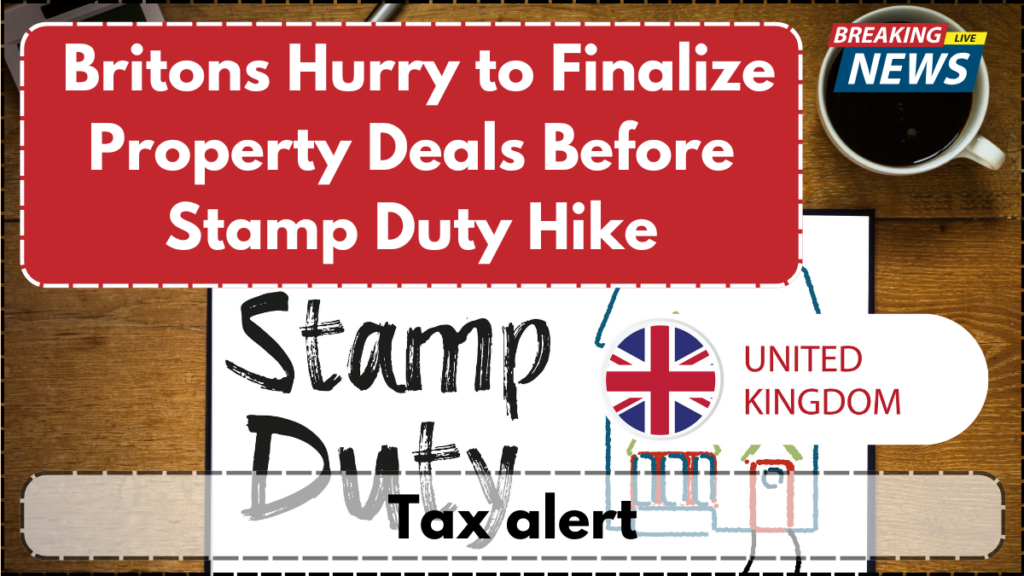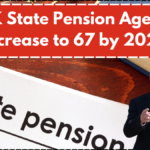As of May 2025, the UK housing market is experiencing a wave of intense activity driven by looming changes to stamp duty. Homebuyers across the country are accelerating transactions to avoid higher taxes, pushing house prices to their fastest growth rate in more than two years.
According to the Office for National Statistics (ONS), average house prices rose by 5.4% year-on-year to February 2025. This marks a notable increase from the 4.8% annual rise recorded in January. The steady climb in prices has been building since mid-2024, fueled by urgency from prospective buyers and reinforced by an overall strong property market.

Surge in Property Prices Across UK Regions
In February 2025, house prices continued to rise across all UK nations. Here’s a regional breakdown of the latest figures:
| Region | Average Price (Feb 2025) | Annual Price Change |
|---|---|---|
| England | £292,000 | +5.3% |
| Wales | £207,000 | +4.1% |
| Scotland | £186,000 | +5.7% |
| Northern Ireland | £183,000 (Oct–Dec 2024 avg.) | +9.0% |
| North West (England) | N/A | +8.0% |
| London (slowest growth) | N/A | +1.7% |
Northern Ireland has led the UK in annual growth, reflecting strong demand relative to supply and a more affordable entry point for buyers. Meanwhile, London continues to show the slowest appreciation, possibly due to affordability constraints and higher base property values.
Stamp Duty Reform: What Changed in May 2025?
The recent changes to stamp duty have significantly impacted first-time buyers. Until March 2025, individuals purchasing their first home were exempt from paying stamp duty on properties priced up to £425,000. However, as of May 1st, the exemption threshold has been lowered to £300,000 in England and Northern Ireland. This has triggered a stampede of activity, especially among younger buyers and families seeking to secure homes before the deadline.
Financial institutions like Santander UK reported a dramatic spike in transactions in March 2025, with house purchase volumes tripling compared to March 2024. The rush reflects strategic financial planning by buyers eager to save thousands in taxes.
Economists See Underlying Market Strength
While the stamp duty deadline has clearly inflated short-term demand, analysts suggest the market’s resilience goes beyond tax policy changes. High borrowing costs, weak GDP growth, and global tensions have not deterred buyers.
Elliott Jordan-Doak, senior economist at Pantheon Macroeconomics, noted that house price inflation hit its highest level since December 2022. He believes the data shows the housing market is weathering economic pressures remarkably well, partly due to strong buyer demand and a constrained housing supply.
Falling Mortgage Rates Offer Hope for Buyers
Affordability remains a challenge for many, but recent shifts in lending have introduced some optimism. Several lenders have reduced their mortgage rates following a dip in swap rates—benchmarks lenders use to set borrowing costs. This change comes amid growing expectations that interest rates will fall later in 2025.
Jason Tebb, president of property search platform OnTheMarket, highlighted how cheaper mortgage deals could stimulate further market activity. If swap rates continue to decline, more lenders are likely to follow suit, easing borrowing conditions for homebuyers.
The Bank of England’s evolving stance on base rates will play a critical role in shaping affordability in the second half of the year. As inflation trends downward and global market conditions fluctuate—partly influenced by geopolitical actions such as recent US tariff policy shifts—mortgage rates are expected to reflect these dynamics.
Conclusion
May 2025 marks a pivotal moment in the UK housing market. The combination of a stamp duty deadline and expectations of lower mortgage costs has turbocharged buyer activity. While some of this momentum may taper in the months ahead, the underlying confidence in the market remains strong. With affordability challenges still in play, future government policy and lending trends will be key to sustaining this growth without pricing out a generation of buyers.
FAQs
What are the new stamp duty rules in 2025?
As of May 2025, first-time buyers in England and Northern Ireland must pay stamp duty on homes costing more than £300,000. Previously, the threshold was £425,000.
Why are UK house prices rising?
House prices are rising due to a surge in demand driven by the stamp duty deadline, limited housing supply, and relatively stable employment levels. Additionally, optimism about future mortgage rate cuts is playing a role.
Will house prices fall after May 2025?
A slowdown in transaction volume is possible post-May due to the expiration of tax incentives, but strong demand and falling mortgage rates may prevent any significant price decline.
How do falling swap rates affect mortgages?
Swap rates influence the cost at which lenders offer fixed-rate mortgages. When swap rates fall, lenders often reduce mortgage rates, making borrowing cheaper for buyers.
Is now a good time to buy a house in the UK?
It depends on individual financial circumstances. With mortgage rates easing and high market activity, buyers may benefit from acting sooner, though prices remain elevated.
For More Information Click Here
Pari is a passionate writer known for captivating stories that blend imagination and reality. Inspired by travel, history, and everyday moments, Pari crafts narratives that resonate deeply with readers.




